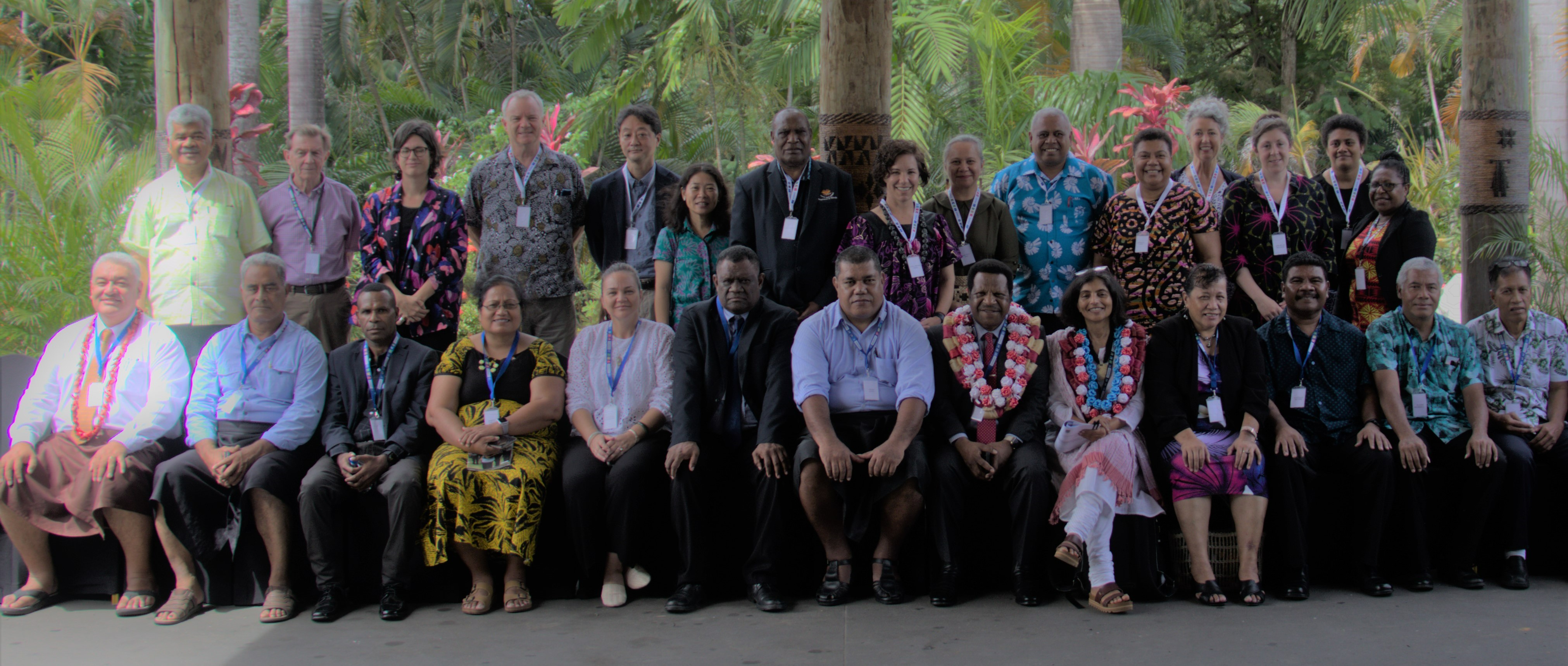Related News

Pacific Heads of Education Systems (PHES) requested the Pacific Regional Education Framework (PacREF) implementing agencies and development partners to support Pacific Island countries (PICs) in embracing digital tools that will support real-time data collection in education.
PHES members emphasised the need for PICs to have well-developed Education Management Information Systems (EMIS) that would support evidence-based decision-making and policy development.
The members of the PHES made the appeal during the 25th Consultation Meeting of the Pacific Heads of Education Systems (PHES) that was recently held at the Tanoa International Hotel, Nadi.
Only a few Pacific countries have a fully functional EMIS and have successfully used the system to collect, monitor, analyse and share information on their education inputs, processes, and outcomes, particularly development relating to student learning.
PacREF Coordinator, Mr Filipe Jitoko, said highly developed EMIS would help strengthen the development and contextualisation of PacREF regional goods.
“It will be a step in the right direction if education ministries have fully functional EMIS with well-trained staff to manage the system and carry out data analysis,” he said.
“The idea was widely discussed during the consultation’s round table discussions with a focus on using real-time data for adaptive management in education and contributing to data-informed decisions toward ensuring that all children in the Pacific have access to quality teaching and learning experiences.
Mr Jitoko continued that when considering how the islands are scattered across the Pacific region, having online education platforms would significantly improve the efficiency of data collection and analysis and provide important information for decision-makers to formulate relevant policies in the education sector.
“Fiji, for example, has a robust education online system, the Fiji Education Management Information System (FEMIS). This has helped the country better manage the recruitment of their teachers, and help them implement policies, for example, free bus fare and textbooks initiatives.”
“PacREF will support countries that have yet to develop their Education Management Information Systems as we believe it is an important tool that will provide evidence that supports decision-making and policy formulation,” Mr Jitoko added.
The consultation meeting was co-hosted by the government of Tuvalu and the United Nations Educational Scientific and Cultural Organization (UNESCO).
PHES is responsible for ensuring that the PacREF Programme is implemented as intended. The members are also responsible for ensuring their system’s needs are understood and addressed through the PacREF programme.
Fifteen Pacific Island countries are participating in the PacREF programme implementation. The adoption of the PacREF 2018-2030 by Forum Education Ministers in 2018 outlined the transformative and sustainable regional education agenda aligned with global agendas such as the Sustainable Development Goals (SDGs), particularly SDG4, the education goal and Education 2030: Incheon Declaration on Education for All Framework for Action.
The implementing agencies for PacREF are the Secretariat of the Pacific Community (SPC) – Educational Quality & Assessment Programme (EQAP), USP – Pacific TAFE, Institute of Education (IOE), Discipline of Education (DOE), United Nations Children’s Fund (UNICEF), United Nations Educational, Scientific and Cultural Organization (UNESCO) and Australia Pacific Training Coalition (APTC). The Pacific Islands Forum Secretariat (PIFS) is a regional partner to the PacREF.
Global Partnership for Education (GPE), the Asian Development Bank (ADB), the New Zealand Ministry of Foreign Affairs and Trade (MFAT) and the Australian Government Department of Foreign Affairs and Trade (DFAT) jointly fund the programme.